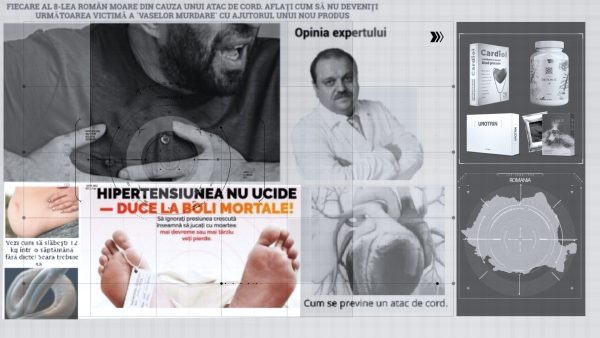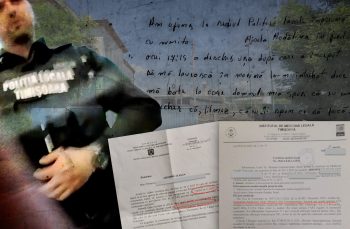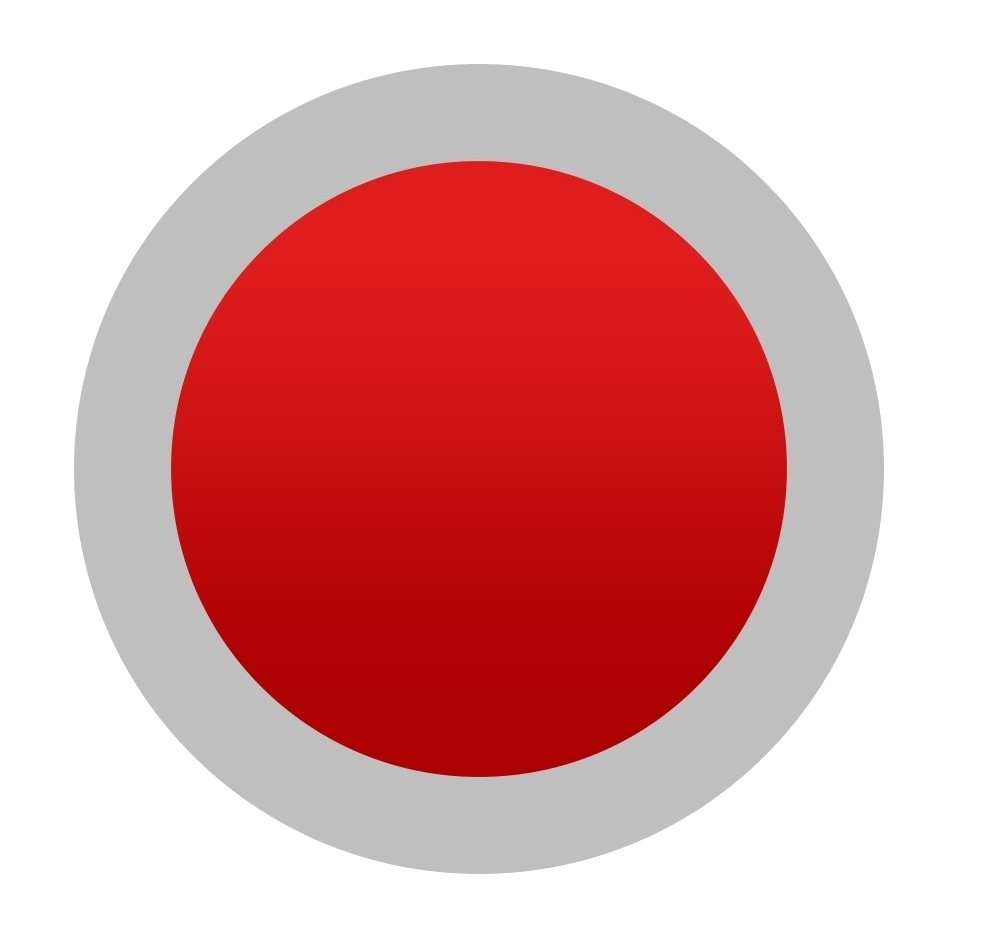The dietary supplement mega-scam: millions of euros made with Internet lies
- An international network coordinated from Russia and Ukraine is targeting elderly Romanians with a massive scam in which people are reeled in with false advertising posted on the Internet and persuaded to stop taking treatments prescribed by doctors and instead take bogus dietary supplements which can endanger their lives.
- Tens of millions of euros are being made, and the main victims are pensioners and other people who aren’t Internet-savvy or experienced in checking information. The most advanced methods of manipulation are used on them: websites of institutions such as the Ministry of Health are cloned, doctors’ identities are stolen in order to make it look as though they endorse the bogus supplements, and applications that disguise the origin of telephone calls are used to prevent victims from tracking down the people who sold products to them.
- The network makes use of market research into the geographical incidence of illnesses and the frequency of Internet searches for various conditions. The fake advertising industry has used this information to create dietary supplements and manipulation techniques for almost any condition, from diabetes and high blood pressure to prostatitis and haemorrhoids.
- Many media websites are in on the scam. They monetise their traffic by carrying false advertisements for all sorts of “miracle cures”. People visit the webpages of these publications to read news, and at the end of the articles, they find adverts which sell them the illusion that they can be cured of any condition quickly.
- Although the products are sold illegally, without approval from the Institute for Food Bioresources (IBA), the state is standing idly by, blaming gaps in the law and leaving consumers to fall prey to the fraudsters. Meanwhile, other European countries have started to act and are warning their citizens about the dangers.
- Recorder talked to victims of the scam, people who got involved in it and then pulled out due to feelings of guilt, the authorities that are tolerating it, the intermediaries who profit from it, and those who sit back in the shadows while tens of millions of euros roll into their accounts.
To understand how this vast network of scammers operates, picture this scenario. A pensioner suffering from diabetes scrolls on his phone and comes across a news item that piques his interest: “Important government announcement, what will happen to pensions!”
He clicks on it and is taken to the website of a major TV channel that he watches often and trusts. He reads the item and doesn’t find out much about pensions, but eventually, another headline catches his eye: “New diabetes discovery stuns doctors”. The format is similar to that of the other items on the website and the headline resembles a news headline, so the pensioner clicks on it out of curiosity, completely unaware he has clicked on a paid advertisement.
He is directed to one of the hundreds of cloned websites that promote dietary supplements. It bears the logo of the Ministry of Health and includes quotations from several doctors, such as Alexandru Rafila. They all mention discoveries of “wonder drugs”. The gallery below shows just a few examples of this kind of scam.
All this information is blended together in the pensioner’s mind. He visited a TV channel’s website, then saw the logo of the Ministry of Health and read a statement by Alexandru Rafila that recommended a “wonder drug”. The TV channel’s website was genuine, but not so the statement by Alexandru Rafila or the webpage bearing the ministerial logo. The elderly man is very unlikely to be able to make a distinction and realise that in the virtual realm, fact and fiction can be just a click apart. So there’s a good chance he’ll fall into the trap by entering his phone number and clicking on “Order”.
Within minutes, the elderly man receives a phone call from a call centre worker who claims to be a doctor or pharmacist and uses manipulation methods tailored to the customer’s profile. Below, you can listen to a conversation between a call centre worker and a Recorder reporter who posed as a customer interested in ordering a slimming product.
Behind all this is a whole industry that operates on an international level. We identified hundreds of duplicated websites in several languages, of similar or even identical appearance, in Romania and many other countries. For instance, for diabetes, the network sells products such as Dialine, Dianol, Suganorm and Insumed. For high blood pressure, the same method is used to sell products with names such as Detonic, Normalife, Neocard, Recardio, Cardiline, Cardio NJR and HeartTonic. But the names of the supplements change constantly as the network invents new medicines all the time. When a product stops selling well in a country or attracts unfavourable media coverage, the network replaces it with another one. They make up different product names and change the packaging, but use the same promotion methods.
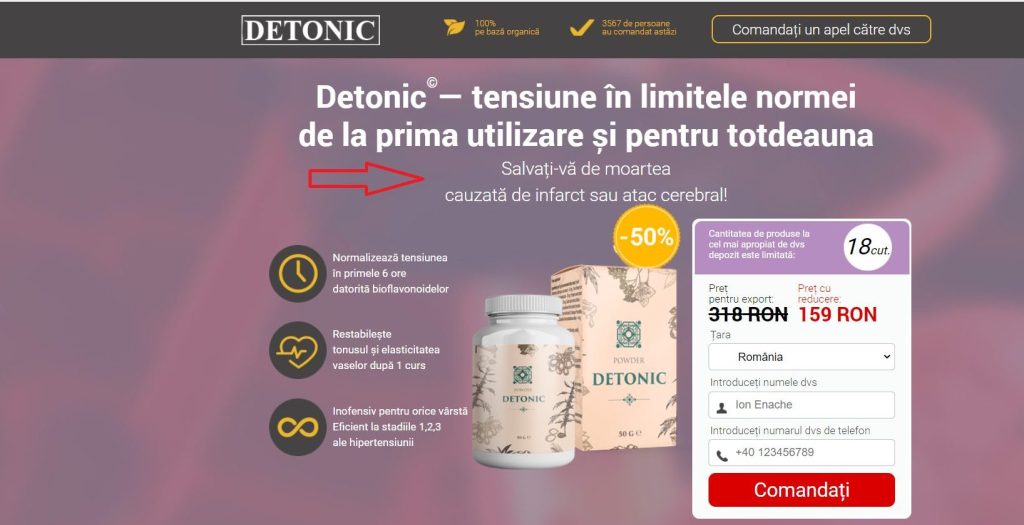
Screenshot of a webpage promoting a supplement called Detonic
“Avoid dying from a heart attack or stroke!” is the gloomy warning on the Romanian version of one such website, which promises that high blood pressure can be cured “once and for all” by Detonic, “a sensational product developed by scientists”. “Start your treatment now and become totally healthy”, the website says, mentioning “Romanian scientists at the State Phlebology Centre” and “clinical tests at the Institute of Cardiology”. The centre and the institute of cardiology aren’t identified more specifically, and an “Andrei Savinski, highest-category doctor, Candidate of Medical Sciences, 30 years’ experience” is quoted.
Then there are testimonials from patients who claim that Detonic saved their lives. Some demonise drugs prescribed by doctors. For instance, we learn from “Lidia, Oravița, 61 years old” that “lowering blood pressure with tablets leads to strokes” and that her doctor, “a very wise lady”, prescribed Detonic for her.
A Recorder reporter phoned up, claimed to have heart disease, and was told by a Detonic sales advisor to stop taking drugs prescribed by doctors for heart conditions.
To order Detonic, the reporter accessed one of the thousands of webpages created for products like this. When they checked out the “experts” and “testimonials” on the webpage, they soon found the hallmarks of a scam. The webpage gave no contact details, didn’t name the manufacturer, and mentioned non-existent institutions and experts. For example, a Google search for one expert’s photo revealed that “Dr Andrei Savinski” from Romania was also “dottore Armando Rossi” from Italy, “doktor der medizin Patrick Zwanger” from Germany, “medico Manuel de Oliveira” from Portugal and “doktor Vadasz Gzula” from Hungary.
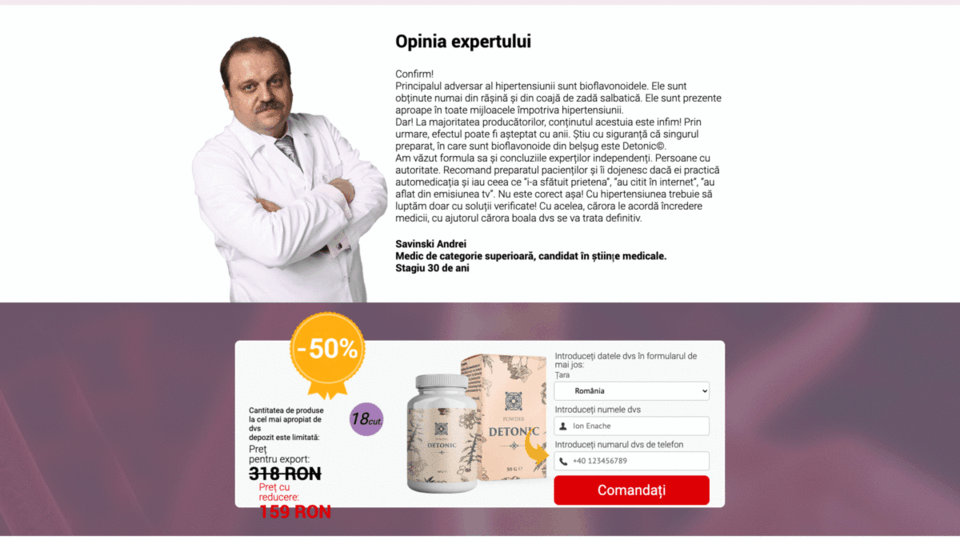
One photo, multiple identities
The patients whom Detonic has supposedly cured are equally fictitious. On other Romanian websites which promote products in the same way, “Lidia from Oravița” gives the same testimonial, but for different medicines. And in other countries, the photo of “Lidia from Oravița” is used by Katalin from Győr (Hungary), Lydia from Kardzhali (Bulgaria) and Belma Tahirović from Sarajevo (Bosnia).
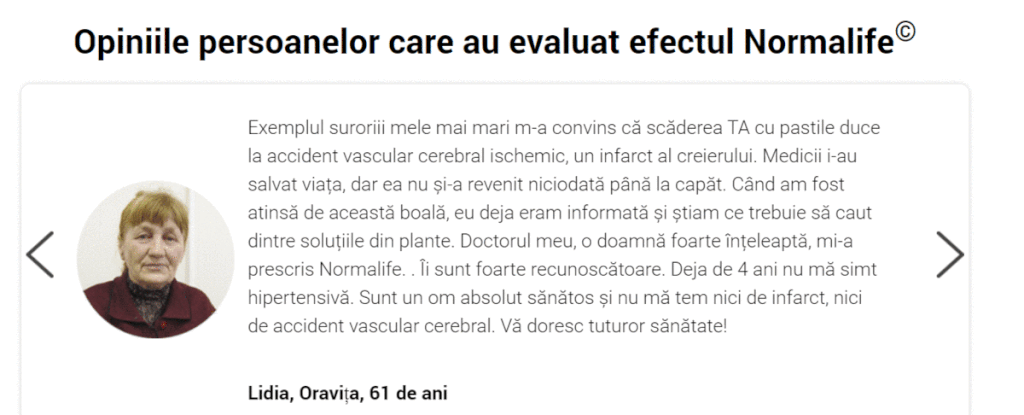
Lidia from Oravița and her multiple alter egos
Tens of thousands of Romanians are finding out online about Detonic and other increasingly popular dietary supplements promoted by the same network. Within the last month, Detonic has been searched for on Google more than 15,000 times. Urotrin, a similar product, has been looked up more than 30,000 times (source of information: semrush.com).
Because the network behind the products is so wise about the ways of the Internet, Google searches for their names yield nothing but positive information. Dud supplements appear on so many websites and are so well indexed on Google that searches for “Detonic” or even “Detonic opinions” or “Detonic scam” lead to the same outcome: all of the results displayed by Google lead to websites created by the network which sing Detonic’s praises and describe it as a wonder drug.
Many people who get sucked into this maze of websites controlled by the same network of fraudsters start to believe that Detonic really can help them, when in fact it is nothing more than a powder containing pumpkin seeds, hawthorn, aloe vera, goosefoot and chaga mushroom.
“I couldn’t get out of bed”
Mărioara Achim, a 52-year-old woman from Stăncuța district (Brăila County), was one of those who believed a powder made from plants could treat cardiovascular conditions. She has had heart problems for 12 years and was fed up of swallowing tablets prescribed by her cardiologist for high blood pressure day in, day out. She bought six packs of Detonic for RON 500 because she was told it was a “special offer”. The salesman advised her to stop taking the tablets prescribed by her cardiologist. “He gave me all the details and said Detonic would be the best treatment and I’d be cured of my high blood pressure. But I felt really ill because I’d stopped taking the treatment given to me by my doctor.”
A while later, the salesman phoned her again and told her about another promotion. Although the woman told him she was feeling ill, he urged her to keep taking Detonic and said she would feel better. She took his advice. “My blood pressure increased, I couldn’t control it, I couldn’t get out of bed. So I decided to stop taking it and started taking my prescribed treatment again. I don’t recommend it to anyone. I took Detonic for 10 days and it didn’t do me any good at all.”
This sales tactic of making follow-up calls and trying to persuade people to keep taking a treatment and order more of it is used by the network on all customers. If customers try to find out more about the products they’ve ordered, the salespeople turn nasty.
The persuasiveness of call centre workers is key to the success of this large-scale fraud, and the Republic of Moldova is one of the recruiting grounds. We got in touch with a woman who had worked in one such call centre in Chișinău, who agreed to talk to us on condition of anonymity.
She told us she had worked on the same floor as dozens of other workers who made calls to countries all over Europe and persuaded people to stop taking drugs prescribed by doctors and buy dietary supplements. Workers in the Republic of Moldova aren’t just used for calls to Romania. If they can speak the necessary foreign languages, they also make calls to Italy, Greece, Spain or Portugal and use the same manipulation tactics. The cost of this labour in the Republic of Moldova is low as the net average monthly wage there is about EUR 330.
“A lot of plant-based products are sold from call centres in Moldova. The amount you’re paid depends on how many people you persuade to buy things and how many people’s throats you can shove all this stuff down”, the woman from Moldova told us a year after quitting her job at the call centre.
She only lasted two weeks in the job, during which time she had to tell bare-faced lies about supplements curing anything from high blood pressure to diabetes, cystitis, rheumatism, varicose veins, psoriasis, prostatitis, and many other conditions.
“I took a call from a woman who was taking a supplement for diabetes and she said her blood sugar level had increased. Then I said to myself: ‘For heaven’s sake, how can I give her any more of this?’ Because we were supposed to tell them to stop taking drugs prescribed by doctors and take the ones we sold. We had to lie and tell them they were made in Lithuania, Germany or wherever. We had everything on our computer: one half of the screen showed the customer and their phone number, and the other half displayed the information we were supposed to give them. We always said the product was very good”, said the woman, who phoned about 200 people a day, most of them elderly.
“I decided I couldn’t play around with people’s lives”
Her conversations with customers were listened to at random by a Ukrainian supervisor. Each team had a coordinator who made sure the worker stuck to the script.
“The woman with diabetes told me she’d bought four packs and I was supposed to tell her I was a doctor and sell her another six. That was the tactic. The woman complained and said her diabetes had got worse. Then I decided I couldn’t play around with someone’s life, got up from my chair, and walked out. I told the Ukrainian man I couldn’t go on like that. He said the door was open and a lot of people were waiting to take my place. I have a friend who still works for them and she says they’re swamped with orders, they can barely cope”, the former call centre worker said. She added that the workers weren’t given contracts of employment and were paid about $400 a month under the table.
The origin of the supplements is a mystery even to those who work in the call centres: “We didn’t know exactly where the products came from, we only knew what the script said, and it was a pack of lies.”
Below, you can listen to a conversation in which a Recorder reporter tries to find out from a salesperson where dietary supplements are made.
Why do call centre workers try to hide the origins of dietary supplements? Because then they’d lose their image as “wonder drugs”. In actual fact, they’re made in Russia by companies that make no secret of what they do: they pour powders made from plants into plastic jars which they package and label on demand. “We’ve developed and manufactured over 1,000 products in the last five years for affiliate marketing programmes”, says Kapital Produkt, a Moscow-based firm. It offers to “create an idea and a product name, create a unique design, draw up documents and create the product.”
So plant-based supplements are easy to make, but the big unknown is the network that turns them into “wonder drugs”, promotes them with false advertising on the Internet, and then sells them for tidy sums to naive people who buy into the illusion. The question is who comes up with the manipulation techniques, delivers the products and then rakes in tens of millions of euros from this industry.
To track the network down, we started by ordering a pack of Detonic to find out who the sender was. “Do you know how many of these I deliver every day? Pfff, a lot, a whole lot…”, we were told by the courier who delivered the pack of Detonic to us. And he only delivers within the Drumul Taberei area of Bucharest.
The delivery documents that came with the Detonic we bought named the sender as Multitude Wealth LP, a company registered at an address in London, UK. The same address is used by a plethora of firms and offshore companies registered in a number of countries including tax havens such as Panama and the Seychelles. Networks like this are often created in businesses where the real owners want to keep their identities secret.
We checked out the origins of other products sold by the network. All the clues led us to companies whose beneficial owners concealed their identities through offshore companies or law firms which offered financial services to hundreds of companies.
The whole system is designed in such a way that the injured party doesn’t know who to take action against when they realise that the “miracle supplements” are just powders that are of no benefit to them or even worsen the state of their health.
The same principle is applied at the call centres, where software is used to disguise the real phone number of the call centre worker who contacts you. If you try to phone them back, you get through to a stranger who has no idea their number was used for a scam.
The network as seen from the inside
After several weeks of research, we managed to find out which companies develop the manipulation strategies and coordinate the whole business. We then went undercover into the network to find out from the inside how it operates.
We identified two firms with a significant presence on the Romanian market: Leadbit (Russia) and Everad (Ukraine). Both pass themselves off as reputable businesses in the affiliate marketing sector. This is a type of online marketing where the head company sells products through partners who are paid on a commission basis. We applied to become a partner, underwent a number of checks, and then gained access to a platform listing dozens of dietary supplements, including Detonic.
The platform lets you, as a partner, choose which dietary supplement you want to promote and you gain access to a ready-made “manipulation kit” consisting of the photos and texts you’ll need to create marketing websites to deceive prospective customers, all based on the same template of bogus experts, phoney patient testimonials and references to celebrities who supposedly use the product.
You’re also given advice about how to promote the websites with which you’ll fool people, and even access to translation services. Because if you want to make more money, you’re advised to get your websites translated into several languages to expand your potential customer base.
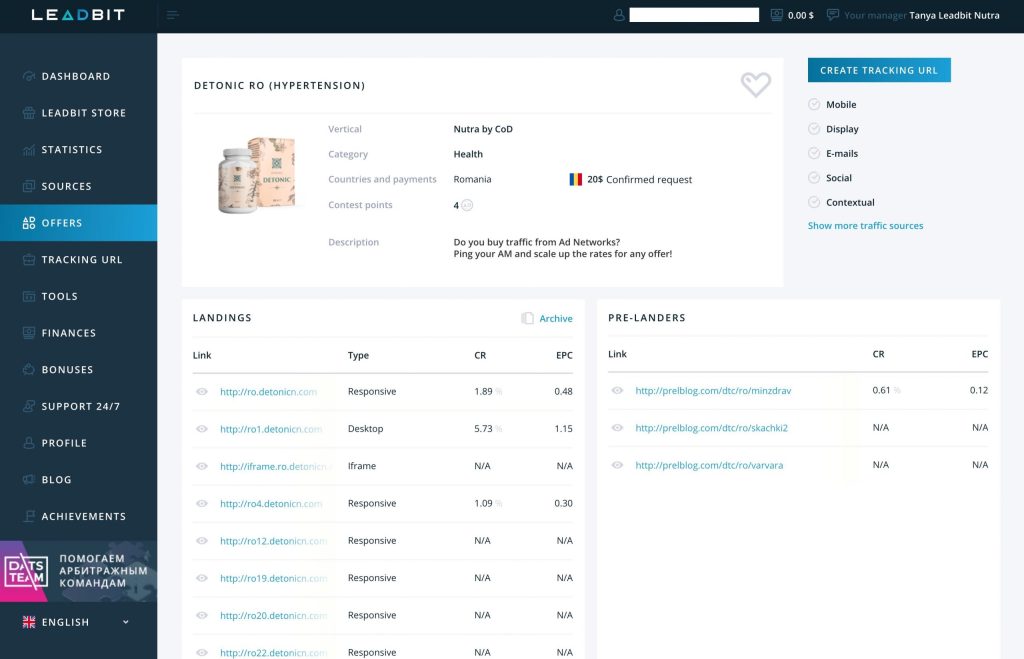
This is what the Leadbit platform looks like when you log in with a partner account. At the top right, you can see the amount you make on every order ($20), and at the bottom, you can find links to multiple preset landing pages (accessible here) with which you can create websites to present the product.
Anyone with relatively advanced digital skills (website creation, SEO, etc.) who has no issue with making money by scamming people can become a partner in a network like this. They can sign up on Leadbit, select Detonic or any other supplement, receive everything they need, and set up a product presentation website. Then they can start promoting it on the Internet to attract customers. Every time someone clicks on “Order” on this partner’s website, the partner stands to earn a commission. Leadbit does the rest: the customer is phoned by its call centre, their order is taken, the product is delivered to them, and their money is taken.
So these companies – Leadbit and Everad – have created networks of virtual sellers who work for them, flooding the Internet with hundreds of websites for just one purpose: to con as many people as possible.
It’s like a gang of pickpockets trained by a Fagin-like figure and sent out to swarm the buses in a town and pick the pockets of as many pensioners as possible.
Except that things look a bit different in the Internet age: pensioners are robbed not on buses, but on sofas in their living rooms by boys who are sitting in front of computers hundreds of miles away.
Now you’re probably wondering who the ringleader of the pickpockets is – who’s behind Leadbit and Everad.
These firms are owned by whizz-kids in Russia and Ukraine who openly flaunt their lavish lifestyles on social media. The photo gallery below includes pictures of Denis Lagutenko and Egor Bruskin, the Russian co-founders and owners of the Leadbit network, which sells dozens of dietary supplements marketed as wonder drugs. The gallery also includes a photo of Leadbit’s offices in Moscow posted on the Facebook page of Bruskin, who boasts that within just three years, Leadbit expanded its operations from the Baltic countries to Europe and to places as far apart as Colombia and Vietnam. On its Facebook page, the Russian firm boasts that it owns call centres in 50 countries.
We sent Leadbit several questions about the dietary supplements it sells in Romania but received no reply.
[slide-anything id=”21221″]
The Ukrainians behind Everad are at least as successful. They sell dietary supplements in over 20 countries, including Romania, through a network of affiliates who clone websites on an industrial scale and use the same manipulation methods. Everad has call centres which take orders and deliver products, and all the affiliates have to do is sell as many supplements as they can. Top-performing affiliates are offered not only generous commissions, but also prizes. Whoever tricks the most pensioners can win a Range Rover!
The scale of Everad’s business can also be gauged from a statement issued by the Ukrainian authorities in May 2020: “Cybercrime experts at the Ukrainian Security Service have uncovered online selling of uncertified supplements and a large network of call centres. Over $1.1 million in cash was found at one company’s offices.” The Ukrainian media reported that the company in whose offices the cash was found was Everad. We emailed several questions to the Ukrainian firm but received no reply.
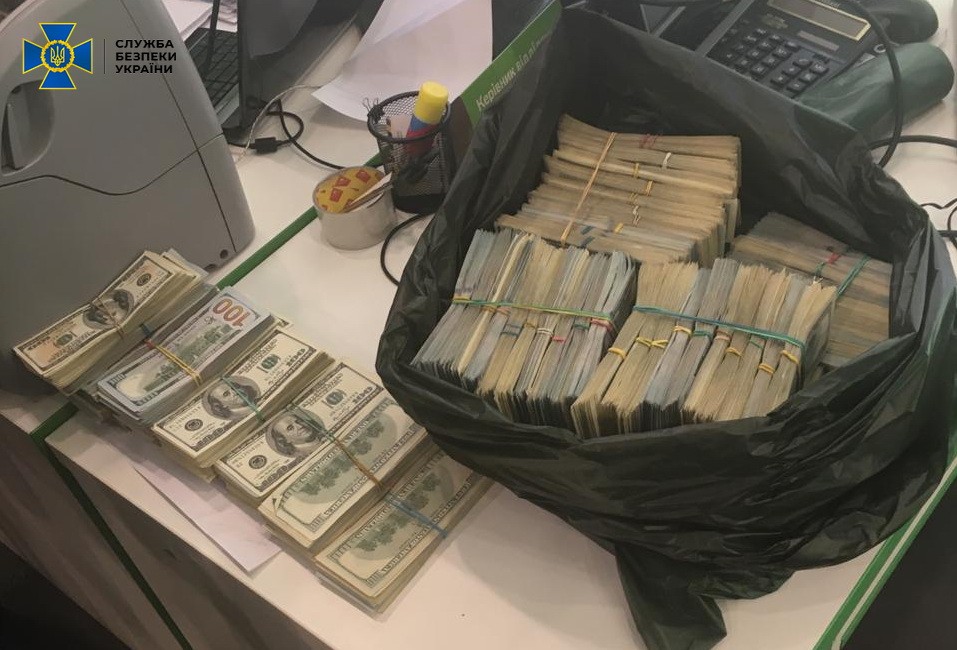
A photo of the money found at Everad’s HQ according to the Ukrainian media. PHOTO: Ukrainian Security Service
Over the last few years, Everad’s operations have been coordinated by two Ukrainians, Ruslan Drozdov and Igor Parinov, who established a company in Romania in 2016: Make Profit SRL, with its headquarters on Calea Rahovei in Bucharest.
The company was subsequently acquired by another Ukrainian, Vitalii Stavnytskyi, and a Moldovan national – Ion Dombrov – became its manager. But Make Profit SRL stayed in the same line of business, and it now sells dietary supplements owned by Everad in Romania.
The company’s turnover has skyrocketed in recent years, surging from RON 840,000 in 2017 to nearly RON 17 million in 2018. According to the latest tax figures available from the Ministry of Finance, Make Profit turned over RON 67 million in 2019 – over EUR 13 million! – despite having only three employees.
When we asked Dombrov how the company he runs achieved this figure, he replied: “By investing in advertising.” We then confronted him with the deceptive advertising for its products created by the Ukrainians at Everad who established the Romanian firm Make Profit SRL.
“Adverts for all products are deceptive, not just mine”, was Dombrov’s excuse. He then tried to blame the army of online sellers: “We have contracts with lots of webmasters, they do our sales. We tell them what the product is, we give them information, and they do the rest on their own. And when we come across an inappropriate advert, we email them and they change it.”
But deceptive adverts aren’t the only issue. Dombrov admitted to us that the supplements he sells don’t have all the approvals needed to sell them in Romania legally, and then claimed he didn’t sell them any more. “We tried to register them, and when certification was refused, we destroyed the ones we had in stock. They’re not sold in Romania any more”, he told us.
Shortly after talking to the manager of Make Profit SRL, we placed an order on a website that promotes one of the company’s products in Romania. Within less than half an hour, we received a call from a salesperson who tried to sell us the supplement and claimed it was made in Germany and had all the required certificates. So the selling is continuing.
The brands that endorse the scam
And things don’t end there, because the list of those who profit from the activity of these networks of scammers is very long and includes far better-known names.
The manipulation strategies used by the companies in Russia and Ukraine and the hundreds of websites that their affiliates create on the Internet can only work if a very large number of people are reached. To that end, very visible launch pads are needed.
That’s why, in exchange for not inconsiderable amounts of money, many websites carry manipulative adverts for these networks of scammers. The sort of adverts with pictures of warts, flabby bellies, worms, fungal infections and other shocking things that appear beneath articles on websites such as click.ro, romaniatv.net, b1.ro, cancan.ro, realitatea.net and wowbiz.ro. When you click on one of these images, you will very probably end up on a landing page that advertises one of the products sold through this Russo-Ukrainian network.
We sent a set of questions about the ethics of this sales activity to cancan.ro, click.ro (part of Adevărul Holding) and romaniatv.net, but received no reply.
Are you wondering how adverts and money move between companies in Russia and Ukraine and Romanian news websites? Through advertising agencies which act as intermediaries and specialise in adverts that are on the fringes of morality, and sometimes beyond them. These agencies buy up spaces on news websites, post their adverts in them, and pay a fixed amount every time a reader clicks on one of them.
The most active agencies in this sector in Romania are MGID and AdNow. The adverts placed by these platforms are often deceptive and manipulative and contain completely untrue information – a fact that’s very easy to check. So neither the advertising networks that make a profit by selling adverts nor the news websites that promote them can defend themselves by saying that they don’t know what’s communicated to readers.
MGID is an advertising network in Ukraine that works directly together with companies like Everad and Leadbit which coordinate the natural supplement scams. MGID mainly promotes adverts for networks like these and also advises them on how to reach as big an audience as possible and what kinds of deception will work on it. In their communications aimed at customers, representatives of MGID say that dietary supplements are very successful in Romania: “Especially products which help to combat diabetes, papillomas, varicose veins, erectile dysfunction and obesity.”
MGID has even gone to the lengths of creating profiles for users based on their county of origin. If you want to sell supplements for diabetes, you need to promote them in Brăila, Arad, Bacău, Ploiești and Buzău in particular. Varicose vein supplements sell well in Satu Mare, and supplements for erectile dysfunction are in demand in Mureș, Sibiu and Maramureș.

MGID’s advice to partners about how to attract customers in Romania
We contacted representatives of the MGID network and sent them examples of despicable adverts that it promoted. They included one that quoted the invented expert “Dr Alexandru Rafila, Romanian endocrinologist” and advised diabetics to stop taking conventional drugs recommended by “illiterate doctors” because they were a “road to illnesses and death”.
The reply from MGID was defiant. “All materials containing these statements are created, targeted and fall under the category of adverts”, said the email we received from Eduard Zaplotynskyi, MGID’s Europe representative. He added that the companies that sell them “are trustworthy” and that “all products comply with rules and are checked”.
Despite this attitude, shortly after we emailed the company, MGID hid most of the adverts that promoted dietary supplements on Romanian websites. The products that “comply with rules” suddenly became undesirable. Below, we have posted some screenshots we have on file which show MGID adverts that promoted dietary supplements on Romanian news websites.
AdNow, the other agency that places manipulative adverts on Romanian websites, told us it wasn’t to blame for this. The cynicism shown in its reply perfectly sums up the philosophy of this industry:
“AdNow is not responsible for the promoted products because they do not belong to us. (…) The main aim of the advertising promoted through us is to attract readers from the websites we work with and to monetise the traffic. This industry and all parties involved in the process have a common interest – the concept of monetisation. Publishers have an interest in monetising their traffic as much as possible, advertisers have an interest in ultimately selling the promoted product, and we, as intermediaries, make sure that both publishers [Editor’s note: websites] and advertisers achieve their goals.”
Representatives of the company acknowledge that Leadbit and Everad have been partners. The fact that these firms clone institutions’ websites or invent doctors and patients doesn’t seem to be a problem when the only aim of everyone concerned is to make money.
A corporation too powerful to give explanations
We can’t fail to mention the best-known intermediary that helps to disseminate false adverts to as many people as possible. It’s Google, one of the world’s biggest corporations, which makes huge revenues by disseminating adverts on the Internet.
While controversial platforms such as MGID are rejected by many publishers, Google places adverts on almost all Romanian news websites. In some cases, it even places adverts for plant-based supplements that lead you to trap websites even though it claims to apply strict filters to eliminate products which “suggest that they are as effective as prescription medicines or controlled substances” or are “not government-approved”.
Google also makes money from the network that sells “wonder drugs” by making them more visible in its search engine. For example, if you search for Detonic on Google, the first few results you see will be marked as adverts, which means that Google made money by giving them greater visibility.
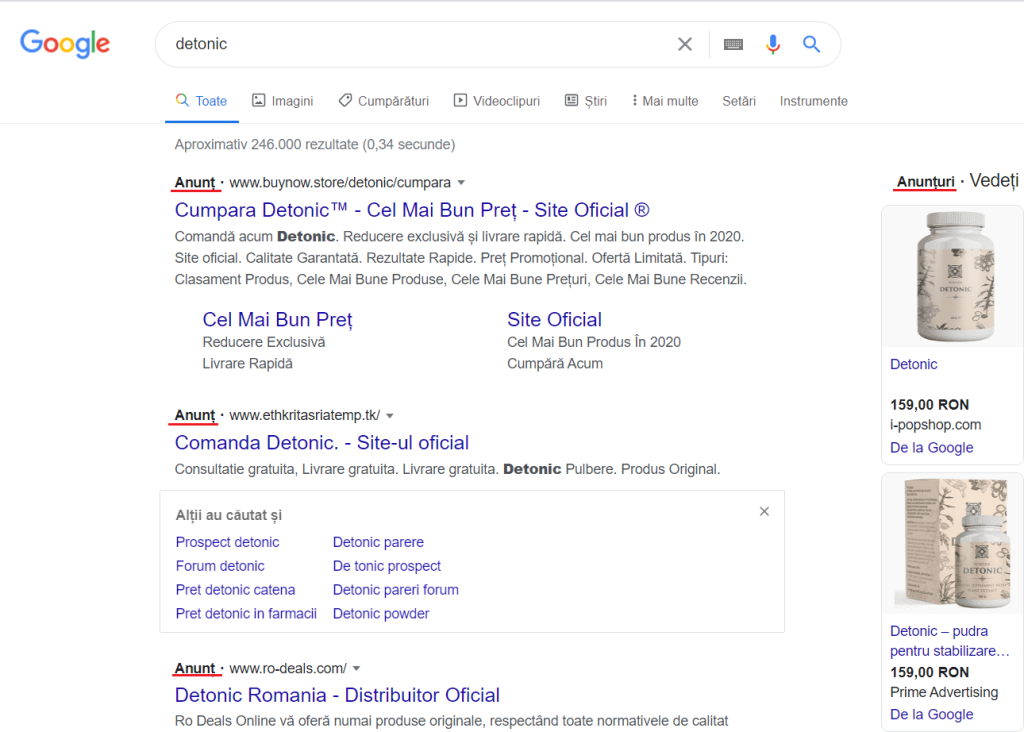
The result page generated by Google when you search for Detonic
The American corporation doesn’t seem interested in making the filters that ought to eliminate false advertising any stricter. We asked representatives of Google Romania for an official statement about this situation, but nearly a week later, we have yet to receive a reply.
It’s all illegal, but the Romanian state can’t do anything
If you’ve read this far, you’re probably willing to read on to find out the Romanian state’s response to all this. Aside from the false advertising and fraudulently-used names of doctors and institutions, the most obvious problem in all this is that the sale of the supplements offered by this network is illegal in Romania.
In theory, no plant-based supplement can be placed on the Romanian market without being checked and approved beforehand by the Institute for Food Bioresources (IBA). We sent it a list of 22 products sold through the network coordinated from Russia and Ukraine. It told us that 20 of them aren’t authorised in Romania, while in two cases, the manufacturers tried to obtain authorisation but failed because they didn’t provide the requested additional documents.
The non-approved products include Detonic. “It hasn’t been notified by the institute and it isn’t notifiable because it contains a plant that’s banned in this country, Leonorus heterophyllus. So it’s illegal trading”, we were told by Tatiana Onisei, the head of the National Medicinal Plants Office within the IBA.
Onisei admits that this category of supplements sold on the Internet breaks all the rules, especially when expressions like “Save yourself from a heart attack with this supplement” are used. “There’s no way they’re allowed to lead a sick person to believe they can be treated or cured. That’s prohibited for dietary supplements.”
The Institute for Food Bioresources has no means of imposing punishments, so when it comes across dietary supplements that break the law, all it can do is tell the police. But when the police deals with online trading, it’s usually powerless to act, and it says there’s no framework of laws to enable it to punish scammers.
In a letter of 2015, the Economic Crime Investigation Unit of the Romanian Police seconded a request made by the Institute for Food Bioresources for Parliament to draft a law to regulate the sale of dietary supplements, including over the Internet, as quickly as possible.
Parliament has been sitting on the draft of this law for the last eight years, and the final version of it, which has yet to be passed into law by the president, still doesn’t provide adequate tools to regulate the online selling of dietary supplements. “It’s not harmonised with European provisions in the sector, so it won’t stop the phenomenon”, says Onisei.
Amid this general confusion, it’s hardly surprising that the institutions that ought to take action prefer to keep quiet or pass the buck. Three weeks ago, we sent a request to the Bucharest Police Force about complaints and investigations with regard to online selling of unauthorised supplements, but we haven’t received a reply.
We got a similar result when we contacted the National Consumer Protection Authority (ANPC). Thirty-two days after we asked it whether it had received any complaints from consumers deceived by this network and whether it had taken any action, its representatives told us, in a curt reply, that this matter didn’t fall within its remit.
Meanwhile, the Hungarian counterpart of this institution is trying to combat the sale of fraudulent dietary supplements by tracking down suspicious products and issuing public warnings.
We asked the Hungarian National Office for Food Chain Security what action it had taken in relation to the dietary supplement Detonic. It replied much more quickly than the ANPC in Romania and told us what it had done: “Through an investigation, it was established that the information given about the product was not in accordance with legal requirements. Products with the same name and an almost identical composition but different intended uses were put on sale. The photographs used to prove their effectiveness were also fake. We felt it was important to inform the public, and the contents of the website have been removed.”
In conclusion, our message to all public institutions in Romania which feel that they are responsible for stopping this phenomenon is that they have our permission to post this article on their own websites, in the absence of any official warnings to the public.
By: Andreea Pocotilă, Sergiu Dimitriu, Alex Nedea
Editors: Mihai Voinea, Cristian Delcea
English translation: Peter Shortall
